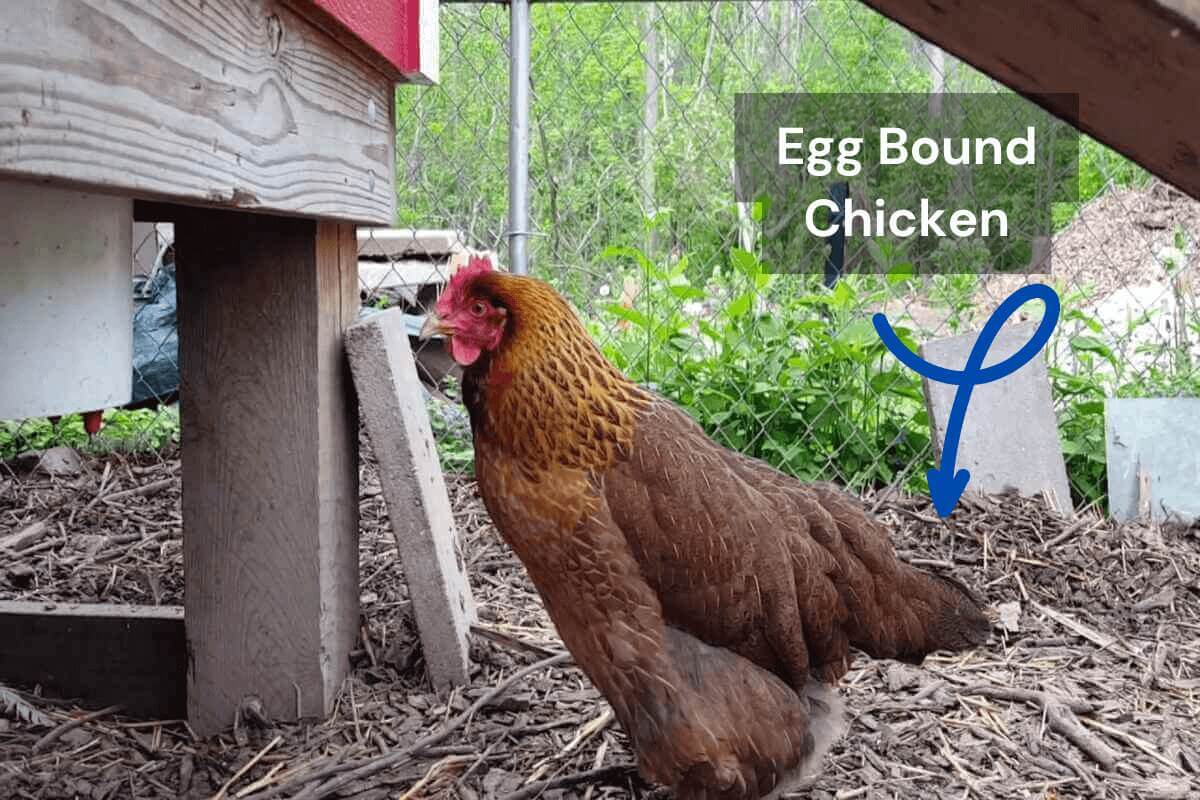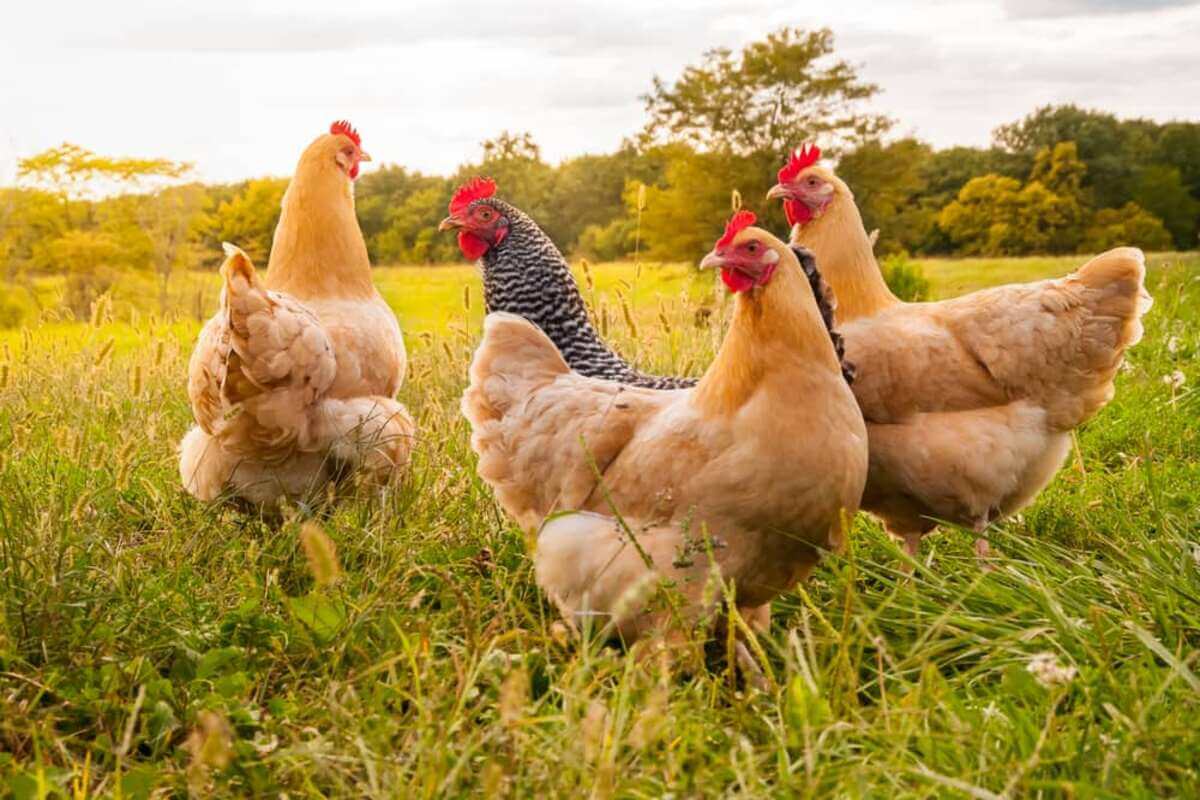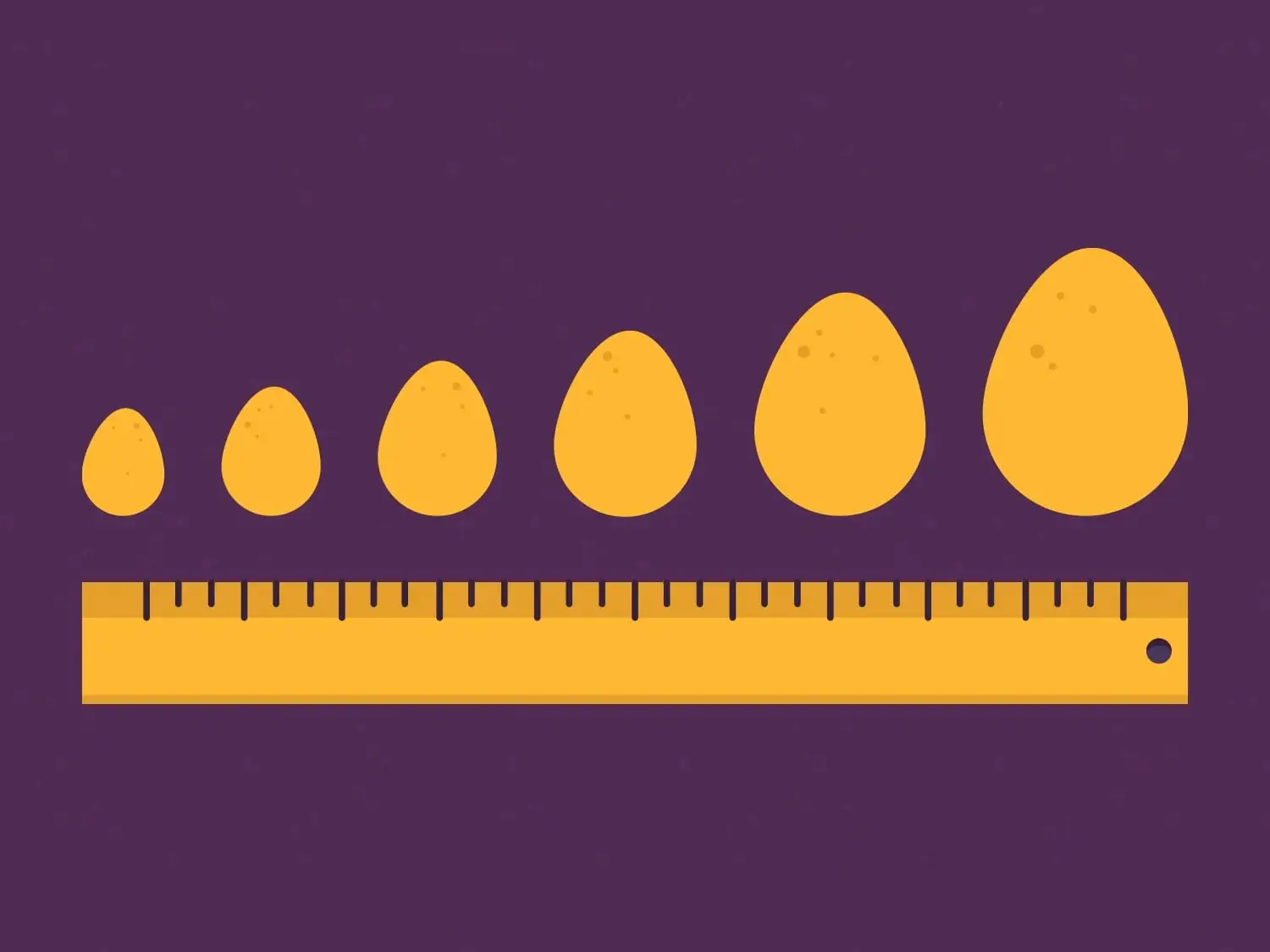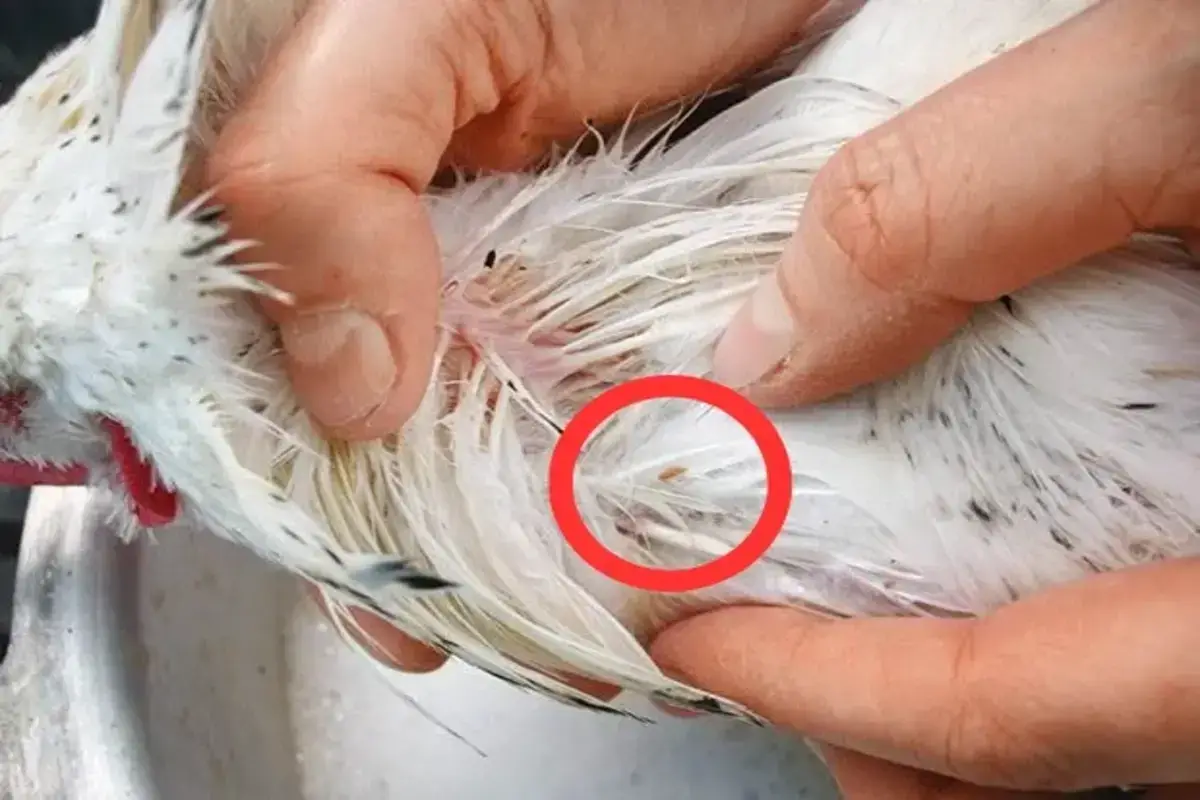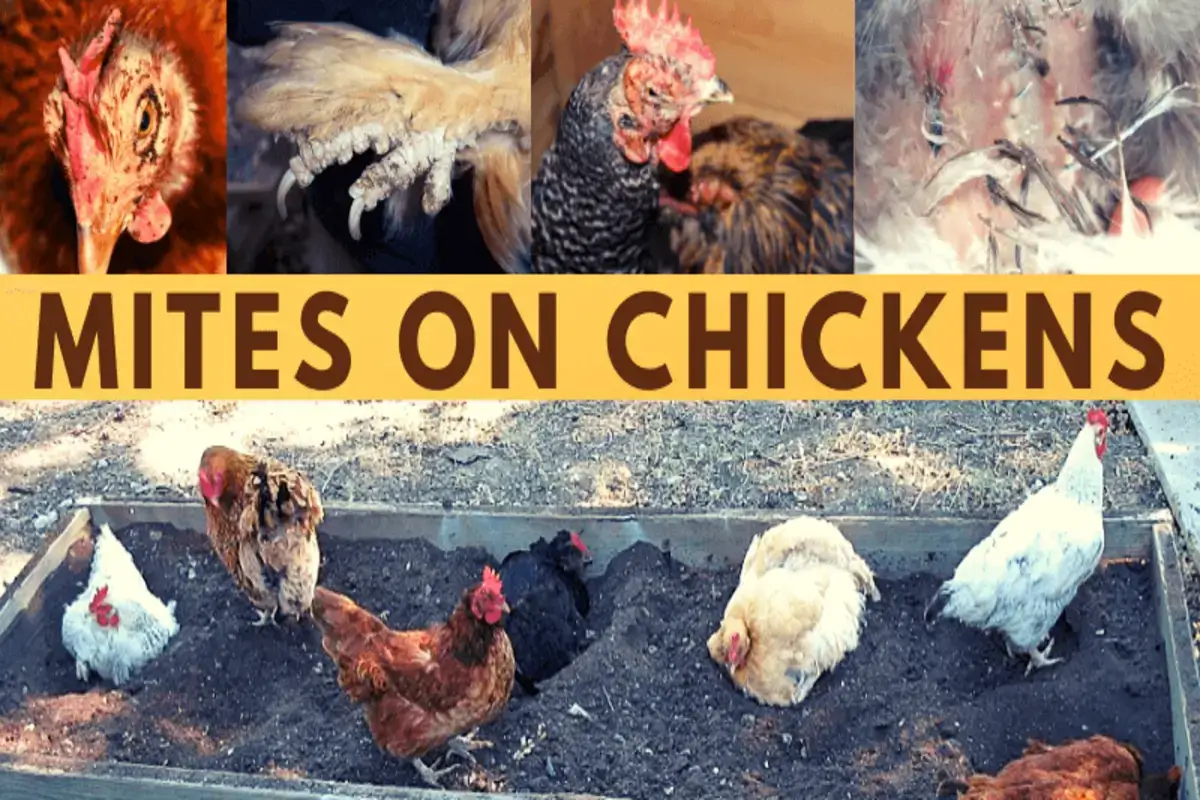Table of Contents
- What is Egg Binding?
- The Anatomy of Egg Laying
- Signs of Egg Binding
- How to Help an Egg Bound Chicken
- Treatment for Egg Bound Chicken
- Professional Veterinary Care
- Understanding and Managing Stress Factors in Chickens
- Managing Stress
- Monitoring Stress
- How to Prevent Egg Binding
- Monitoring Egg Production and Size
- Health Checks & Veterinary Care
- Conclusion
- FAQs
Having an egg bound chicken can be a stressful experience and no one likes pet stress less than me. Egg binding is not only uncomfortable for the hen but can be life threatening if not sorted out quickly. This guide will give you all the information you need to recognize and manage this condition.
From the signs and symptoms of an egg bound chicken to treatments and preventatives we will cover it all so you can keep your flock healthy and happy. Read on to learn how to get your egg bound chicken through this and prevent it happening in your coop again.
What is Egg Binding?
Egg binding is when a chicken can’t get the egg out of her body. It’s most common in domesticated hens especially those that are overweight or not getting enough nutrition but it can happen to any breed at any age. Understanding the condition is key to preventing and managing it.
The Anatomy of Egg Laying
The Chicken’s Reproductive System
Chickens have a reproductive system designed to produce and lay eggs. The ovary produces yolks which travel through the oviduct where they are fertilized (if sperm is present) and encased in a shell. Problems in any part of this system can cause egg binding.
Causes of Egg Binding
Dietary deficiencies especially in calcium and vitamins
Lack of exercise leading to obesity
Dehydration of the egg as it moves through the oviduct
Age where younger and older hens are more prone
Breed where some breeds are more prone to reproductive problems
Signs of Egg Binding
Spotting the signs of egg binding helps in early intervention:
Difficulty or repeated attempts to lay an egg
Visible discomfort or distress
Swollen abdomen or vent
Lethargy or reduced activity
Changes in eating or drinking habits
Abnormal posture, sitting down frequently or penguin like stance
How to Help an Egg Bound Chicken
Immediate supportive care is key and includes:
Isolate the hen in a warm, quiet place to reduce stress and relax the muscles involved in laying.
Hydration and nutrition like water and high calcium foods to help muscle function.
Apply heat like a heat lamp to the abdomen to help relax the muscles and pass the egg.
Treatment for Egg Bound Chicken
Home Remedies
Lubrication: Apply a gentle lubricant to the vent area. Think vaseline or other safe lubricants.
Calcium supplementation: Give calcium orally or by injection to help the hen’s muscles contract and push the egg out. I realize that very few people have calcium or a way to inject it so this is a good time to phone a vet friend for some help.
Professional Veterinary Care
Manual extraction: Only do this yourself if you are experienced and know what you are doing to avoid injuring the hen.
Oxytocin injections: These will stimulate contractions to help the egg pass.
Surgical options: In severe cases surgery may be needed to remove the egg and prevent further health problems.
Understanding and Managing Stress Factors in Chickens
Stress is a major factor in chicken health, including reproductive health. Managing stress is key to preventing egg binding. Stress in chickens can be caused by many factors, each affecting them in different ways.
Stressors in Chickens
Environmental Changes: Sudden changes in living conditions, moving coops, changing flock composition or big weather changes can cause stress.
Overcrowding: Not enough space means competition for food and nesting sites and stress and aggression in chickens.
Poor Ventilation: Not enough ventilation means poor air quality and ammonia buildup which is not only stressful but also bad for the chickens’ respiratory system.
Predator Threats: Predators or even the fear of predators can cause chronic stress in a flock.
Managing Stress
Consistent Routine: A regular schedule for feeding, cleaning and egg collection reduces stress by providing a predictable environment.
Adequate Space: Make sure your coop and run has enough space for all your chickens to live comfortably. The general rule of thumb is 3-4 square feet per chicken inside the coop and 8-10 square feet per chicken in an outside run. This is a rough guide and depends on how big your chickens are as well. They share nesting boxes so nesting boxes are never a one to one thing. Also they stand next to each other while sleeping / roosting on the roosting bars so make sure you take that into account.
Environmental Enrichment: Provide perches, dust baths and varied terrain for chickens to express natural behavior which can reduce stress and improve overall health.
Secure Housing: Protect your flock from predators by making sure the coop is secure and fortified against threats.
Monitoring Stress
Regular observation of your chickens can help you catch stress early. It's kind of like the airport where you're favorite TSA screeners are looking for groups of outliers. It's not just one thing usually but it's multiple behaviors that are a cause for suspicion.
Signs are reduced laying, feather pecking, aggression or changes in eating habits. It's a great idea to include behavioral checks in your regular health checks to catch stress related behavior early so you can intervene.
By managing the stress factors in your chickens environment you can reduce the risk of egg binding and other stress related health issues. This will not only improve your flock’s health and welfare but also their production and life.
How to Prevent Egg Binding
Prevention includes:
Proper nutrition: A balanced diet with calcium and essential vitamins is crucial. For optimal health, consider providing your chickens with Vital Nutrients supplements, which are specially formulated with essential vitamins and trace minerals.
Exercise: Encourage physical activity to prevent obesity which is a risk factor. (You had no idea chickens and humans had so much in common =)
Environmental management: Keep the coop clean and stress free, with enough space, bedding and proper nesting materials.
Regular health check: Monitor each hen’s laying pattern and overall health to catch egg binding early.
Monitoring Egg Production and Size
Monitor the size and frequency of eggs laid by your chickens daily:
Daily check: Note any changes in size, shape or frequency.
Behavioral observation: Watch for any changes in normal behavior that may indicate discomfort or distress while laying.
Health Checks & Veterinary Care
Regular veterinary visits can prevent many health issues in chickens including egg binding:
Annual check-ups: Have your vet do a full check up at least once a year.
Immediate medical attention: Call your vet if you see any signs of egg binding or other health issues.
Conclusion
Having an Egg Bound Chicken is a serious condition that needs immediate attention and care. By knowing what causes egg binding, spotting the signs and knowing how to respond you can manage this condition and prevent many of the complications. Regular veterinary care, proper nutrition and good coop management are your best tools to prevent egg binding and keep your flock healthy and productive.
If you have questions or issues feel free to reach out. We're here for you.
FAQs
How do you treat an egg bound chicken?
If she is egg bound, you can start with warm epsom salt soaks for her by soaking for about 10 minutes, drying her either by towel or blow dryer on low setting, and keeping her in a quiet location by herself. This can be repeated a few times daily.
How do I tell if my chicken is egg bound?
When a hen is egg bound she is in obvious discomfort. An egg bound hen stands more upright than usual and walks like a penguin. Her abdomen might feel bloated. She might be sitting in a nesting box, tilted with her tail up, her vent opening and closing, looking like she's straining.
How long can a chicken live if egg bound?
If the egg is not passed within 24 to 48 hours, she may very likely die as a result of her egg-bound state. Veterinary care is important if there is any hope of saving an egg-bound hen. But if veterinary care is not immediately available, careful intervention on your part may be required.
Can egg binding resolve itself?
When detected early, egg binding may be resolved easily. If a prolonged period has elapsed since a bird began attempting to lay an egg, she may become critically ill. "Many bird owners are surprised that a female bird will still lay eggs even when not exposed to a male.
Can an egg bound chicken live?
When a hen has an egg stuck inside her oviduct, she is referred to as being egg bound. Egg binding is a life-threatening condition that must be addressed quickly, preferably by a experienced poultry veterinarian. If the egg is not passed within 24-48 hours, the hen is likely to perish.



